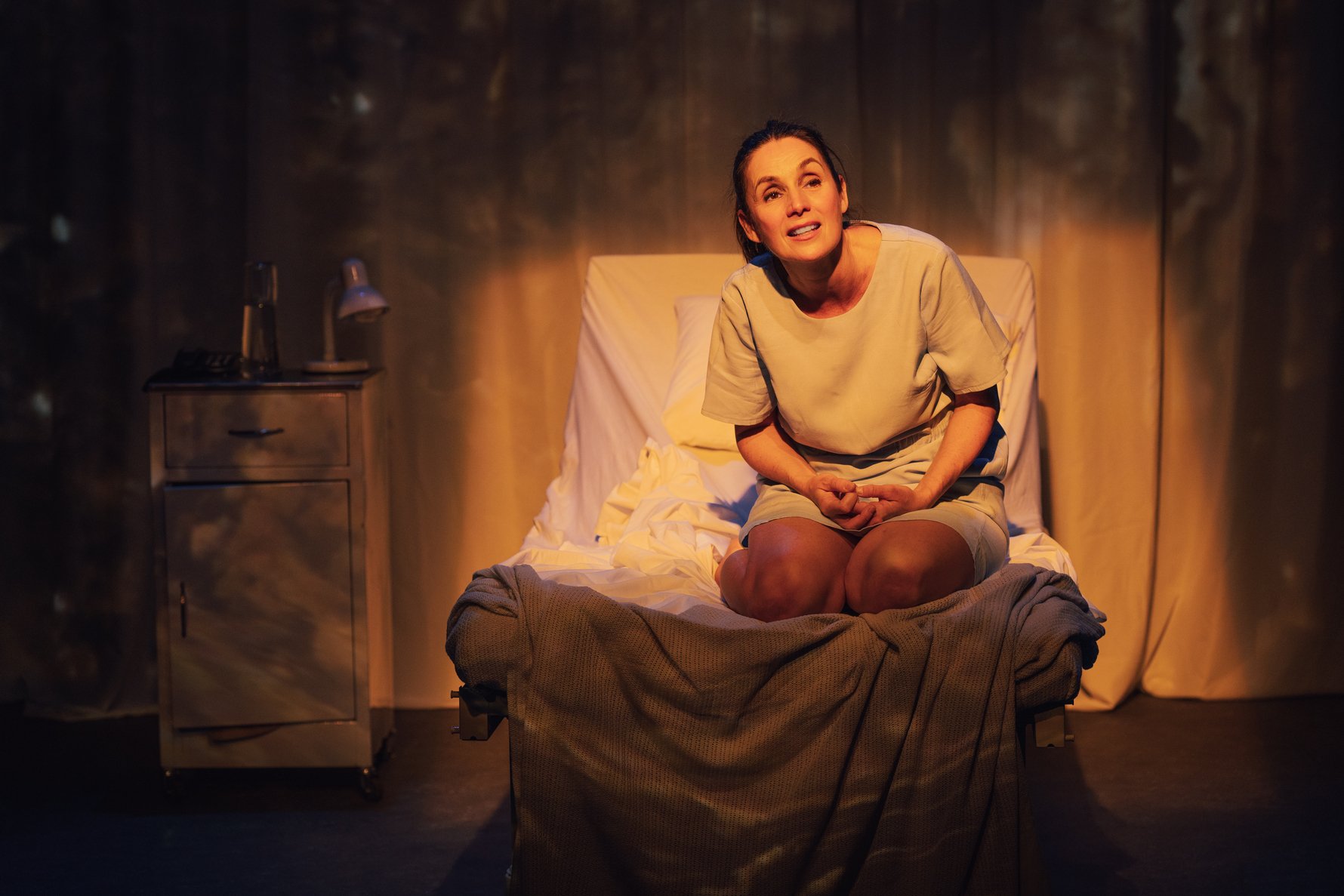We joined director Charmaine Weir-Smith and lead actor Julie-Anne McDowell for an exclusive behind-the-scenes preview of My Name Is Lucy Barton and an interview ahead of the play's Joburg première.
As we settled in for a morning of rehearsal, the atmosphere buzzed with excitement and introspection. McDowell, having previously captivated audiences with her performance as Maureen in The Beauty Queen Of Leenane, is now ready to take on the challenging role of Lucy Barton. Adapted from the beloved novel by Elizabeth Strout, this memory play delves deep into the protagonist’s past, unraveling the layers of her childhood trauma and her fraught relationship with her mother.
"Being Irish in Johannesburg, I also understand that feeling of otherness, of being different. I’ve experienced difficulties like Lucy, but her ‘silver linings’ mentality inspires me." – Julie-Anne McDowell
The passion Weir-Smith and McDowell have for Strout’s book was evident. As soon as the novel was adapted into a play, Weir-Smith was determined to bring it to South African audiences. “The story of Lucy Barton is so universal and yet so deeply personal,” she explained. “It speaks to the resilience of women and the power of memory.”

The way Strout writes is unique in that much of what she conveys lies in the unsaid. “You have to listen carefully because it sounds very simple, but what she’s saying is very heavy underneath, and that’s the beauty of her writing,” says McDowell, a devoted fan of Strout. The novelist captures complex emotions, using metaphors – like ascribing a flavour to loneliness – to evoke a lifelong emotional struggle without explicitly stating it. Her characters reveal their deepest truths indirectly, showing how small, seemingly insignificant moments can lead to profound realisations about life choices. Having read all her books, McDowell notes My Name Is Lucy Barton as her favourite, particularly relating to its story.
Lucy Barton comes from a rural, isolated Illinois small town, Amgash, and eventually moves to New York City, transitioning from an impoverished background to becoming a successful writer. Despite her difficult childhood, she found herself, and was saved, by her writing. While McDowell’s background isn’t the same, she can relate to the transition from a small place to a big city.
“I’m from Belfast, a small city in [Northern] Ireland, and then I moved to Johannesburg, a huge metropolis. I relate to that shift, where your mindset changes, but you also feel disconnected when returning home. Being Irish in Johannesburg, I also understand that feeling of otherness, of being different. I’ve experienced difficulties like Lucy, but her ‘silver linings’ mentality inspires me. She always sees the good in people and uses life’s challenges to propel herself forward. That resilience resonates with me deeply,” McDowell shared.

Going into rehearsal, one wondered how McDowell would manage to portray Strout’s novel, which, although simple in its delicious language, reads like listening to an entertaining yet glib aunt. However, McDowell skillfully portrays Lucy Barton, with her Irish accent lending a subtle Southern, small-town quality that makes her portrayal highly convincing.
"It is a story about how your family makes you who you are, how your family defines you, how you are because of your family, and who you are despite your family." – Charmaine Weir-Smith
The story of Lucy Barton is melancholic, and playing it alone on stage is challenging. The actor must embody all these difficult emotions, communicate them to the audience, and maintain interest without bouncing off energy from other actors. “The connections I’ve built with my director and stage manager have been essential. It’s an intense, intimate working environment, and I feel I’ve grown as a performer. Pacing is crucial, as is staying true to the character and the story without embellishment,” McDowell explained.
For Weir-Smith, this story will resonate with audiences from various backgrounds because many of us can relate to the role family plays in our development as individuals. “It is a story about how your family makes you who you are, how your family defines you, how you are because of your family, and who you are despite your family,” she said.

The idea of bringing this play to South African audiences started 18 months ago when the team obtained the rights to stage the play. They have been in conversation since February and officially started rehearsals in July 2024. The play had a short run at The Hilton Arts Festival, where a mother and daughter came backstage to talk to McDowell and Weir-Smith at one performance, deeply moved by the story. “The mother couldn’t speak, but her daughter explained, ‘This is our life.’" For McDowell, this moment affirmed her commitment to storytelling: “This is why we tell stories – to help people understand themselves and others. If ever I question why I’m doing this, I come back to that truth. I believe in Lucy’s story and how it can help others,” McDowell said. Before the play makes its way to Joburg, My Name Is Lucy Barton gets a Cape Town staging at the Baxter Theatre until Sat, Oct 5.
"This is why we tell stories – to help people understand themselves and others. If ever I question why I’m doing this, I come back to that truth." – Julie-Anne McDowell
Both McDowell and Weir-Smith are mothers, and they shared how working on this play has made them reflect on their parenting. “It made me question whether I am seeing my child for who they are versus seeing them as a child,” Weir-Smith confided. “She [Lucy] is always seen as a child. And I think it shows enormous respect from a mother to a child that you recognise them as the adult, the person that they are. They are their own person. They are not an extension of you. But that is not the case in this story,” she added.

Staging a one-woman show is daunting, but McDowell’s dedication and talent shine through. “She plays Lucy as an adult and Lucy as a child. She plays her mother. She plays her husband, her doctor, and various other characters alone. And I think that keeps the audience’s interest as she transforms into all these different characters,” added Weir-Smith, who believes that viewers will leave the theatre thinking, talking, and debating this challenging piece.
“This play has also challenged people to think about how hard it is to be honest about your life’s journey. You get into your 40s and 50s, and you must ask yourself, 'Have I answered that part of my life? Have I addressed it? Have I investigated it? Because it’s still hanging over me'. And that’s what this character has to do.”
"This play has challenged people to think about how hard it is to be honest about your life’s journey. You get into your 40s and 50s, and you must ask yourself, 'Have I answered that part of my life?'" – Charmaine Weir-Smith
As we wrapped up our interview to make time for the rehearsal, McDowell expressed her sadness that rehearsals were nearing their end because she had learnt so much about herself and Lucy Barton during her regular meetings with Weir-Smith about bringing this story to life. Their commitment to the story and each other is palpable, promising to make My Name Is Lucy Barton a must-see show this season.
Described by the Sunday Telegraph as "glorious, tender, and true", My Name Is Lucy Barton shows at Theatre on the Square in Sandton from Wed, Oct 9 – Sun, Oct 27. Performances are Tue – Fri at 19:30, Sat at 16:00 and 19:30, and Sun at 15:00. Book your tickets here.



_m.jpg)



Comments